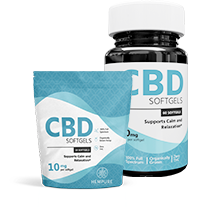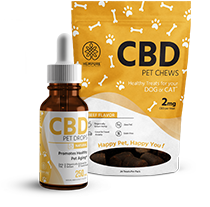The Science Behind Expectorants: How Do They Work?
Sabina King on Jan 29th 2024
Coughing is a reflex designed to clear the airways of mucus, irritants, and foreign particles. However, when a persistent cough lingers, it can be both discomforting and disruptive. This is where expectorants come into play. In this article, we will delve into the science behind expectorants, exploring what they are, how they differ from other cough remedies, and the role they play in respiratory health.
What is an Expectorant?
An expectorant is a type of medication that helps facilitate the removal of mucus from the respiratory tract. It achieves this by thinning and loosening the mucus, making it easier to cough up. Commonly used to relieve symptoms associated with coughs and chest congestion, expectorants are available both over the counter and through prescription.
Cough Expectorant vs Decongestant
While both expectorants and decongestants address respiratory symptoms, they serve distinct purposes. Expectorants primarily focus on thinning mucus, making it easier to expel from the airways. On the other hand, decongestants work by narrowing blood vessels to reduce swelling in the nasal passages, thereby relieving congestion. Choosing between the two depends on the specific symptoms you aim to alleviate.
Over-the-Counter Expectorant
Many individuals turn to over-the-counter expectorants for relief from persistent coughs. These medications are easily accessible and often contain active ingredients like guaifenesin. Guaifenesin works by increasing the volume and reducing the viscosity of respiratory tract secretions, aiding in the clearance of mucus.
Expectorant vs Suppressant
It's crucial to differentiate between expectorants and cough suppressants. While expectorants facilitate mucus removal, suppressants, as the name suggests, inhibit the cough reflex. Suppressants may be beneficial in cases where a persistent cough disrupts sleep or daily activities. However, they should be used cautiously, as suppressing a cough might impede the body's natural mechanism for clearing the airways.
Expectorant Herbs and Natural Options
For those inclined towards natural remedies, various herbs have expectorant properties. Common examples include thyme, licorice root, and eucalyptus. These herbs can be found in teas, tinctures, or as essential oils. Exploring natural expectorants aligns with a holistic approach to respiratory wellness.
Expectorant vs Mucolytic vs Antihistamine
In the realm of cough relief, it's important to distinguish between expectorants, mucolytics, and antihistamines. Mucolytics, such as acetylcysteine, work by breaking down and thinning mucus, similar to expectorants. Antihistamines, on the other hand, are more commonly associated with allergies and histamine-related symptoms but may be found in combination cough medications.
How Does an Expectorant Work?
The primary mechanism of expectorants involves increasing the hydration of mucus, thereby reducing its stickiness. This makes it easier for the cilia—tiny hair-like structures in the airways—to move the mucus out of the lungs. Essentially, expectorants promote a more efficient and less obstructed process of clearing the respiratory passages.
What Is a Natural Expectorant?
Natural expectorants, as mentioned earlier, are often derived from herbs and plant-based sources. They operate on the same principle of thinning mucus and supporting its expulsion. When considering natural options, it's essential to understand individual sensitivities and potential interactions with other medications.
The Strongest Natural Expectorant – A Matter of Perspective
Determining the "strongest" natural expectorant can be subjective, as it depends on individual preferences and responses. However, some herbs, like thyme and eucalyptus, are renowned for their potent expectorant properties. It's advisable to consult with a healthcare professional before incorporating strong natural expectorants, especially for those with underlying health conditions or taking other medications.
When to Take Expectorant
The timing of expectorant use is crucial. Taking an expectorant with a sufficient amount of water is recommended, as hydration enhances the medication's efficacy. Additionally, expectorants are typically more effective when taken during waking hours, allowing the body to benefit from the increased fluid intake.
Legal Disclaimer:
This article is for informational purposes only and does not constitute medical advice. Consult with a healthcare professional before starting any new medication or supplement regimen.
In conclusion, understanding the science behind expectorants provides valuable insights into their role in respiratory health. Whether opting for over-the-counter medications or exploring natural remedies, it's essential to make informed choices based on individual symptoms and preferences. Remember, when in doubt, consult with a healthcare professional for personalized guidance on managing cough and respiratory issues.














